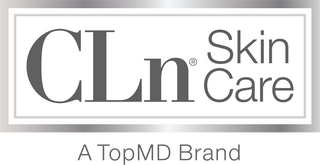“Baby eczema” refers to childhood atopic dermatitis. It is a scaly, red, itchy rash often associated with allergies. It is characterized by recurrent flare- ups, although symptoms can be more persistent in some children. Roughly 65 percent of eczema patients begin showing symptoms before the age of 1, according to the American Academy of Pediatrics. Although eczema is a chronic condition, some children outgrow it by age four.
Causes of Baby Eczema
Although the underlying cause of baby eczema is not known, certain factors raise a child’s risk of developing it. Children with family members who have eczema or other types of allergies have a higher chance of being affected. Living in cities can also raise the risk due to regular exposure to pollutants, dust, and other substances that can irritate the skin. Being in a dry climate can also lead to a higher chance of baby eczema as it predisposes patients to have dry skin.
Additional contributors to eczema flare-ups are Staph infections as seen in recent news reports.
Symptoms of Baby Eczema
The symptoms of baby eczema differ for each child. Some of the most common include persistent itching, often worse at night, raised bumps that can crust over when scratched, and red or brown patches of skin that can become thicker and scaly with rubbing and scratching. Baby eczema affects many parts of the body. Feet, hands, chest, the backs of the knees and the eyelids are commonly afflicted areas. Frequent scratching may also cause the skin to leak fluid or appear raw and swollen.
Complications of Baby Eczema
Children who scratch their skin may develop skin infections due to Staph bacteria. Staph often impacts primarily the skin, but can unfortunately infect more vital deeper tissues, bone, and even enter the blood stream. These complications can occur within hours and urgent medical attention is recommended if the skin infection is spreading. Other complications include interrupted sleep, quality of life concerns due to pain/itching and limitations with school and other activities.
To read firsthand accounts of how eczema can impact the life of both child and caregiver, visit Dermatologist Dr. Aron’s site: http://www.draron.com/mothers-blogs/
Diagnosing Eczema
Pediatricians typically diagnose baby eczema through examination and review of a child’s medical history and symptoms. Allergy tests are sometimes recommended as well. In cases where Staph is suspected, cultures may be collected. Parents also play an integral role in diagnosis by providing detailed information about the flare-ups and potential associative causes.
Treatments and Remedies for Baby Eczema
Baby eczema does not have a cure. Flare-ups are managed with creams, including steroids, antibiotics and occasionally antihistamines. Cleansing also plays a large role in dealing with skin prone to eczema and rash.
Dr. Fred Ghali, a prominent pediatric dermatologist, stated, “Routine cleansing and moisturization are crucial in the management of eczema. CLn BodyWash can help control the microbes that exacerbate eczema, making it an effective option for many patients.” CLn BodyWash, preserved with sodium hypochlorite, is an appropriate cleanser in children six months and older who suffer from eczema, red skin or rashes. CLn does not contain any dyes or fragrances
Managing Baby Eczema
Parents can help control and manage baby eczema by avoiding things that trigger symptoms. Common triggers are dust, synthetic or scratchy clothing, scented soaps and harsh laundry detergents. Home remedies for baby eczema include moisturizing lotion, gentle products for laundry and lukewarm baths. Placing cool compresses on the affected areas can also help relieve itching. Keeping nails short can help prevent skin infections by minimizing the harm done by scratching.
To learn more about nail health and safety, stay tuned for next week’s topic: Nail salon safety tips
